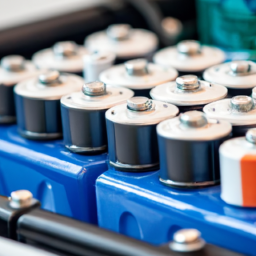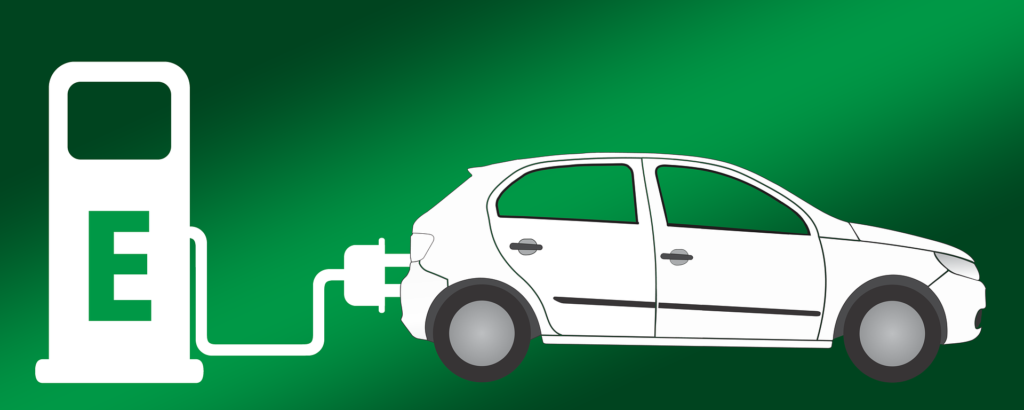Power Up Your Ride: Exploring the World of Electric Car Batteries
In recent years, the world has witnessed a remarkable transition towards sustainable transportation, and India is actively joining the movement. Being the fourth-largest automobile market globally, India is recognizing the potential of electric vehicles (EVs) to address environmental concerns and reduce reliance on fossil fuels. At the core of these cutting-edge EVs lies the incredible innovation of electric car batteries. In this article, we embark on a captivating journey through the realm of electric car batteries in India, uncovering their advancements, challenges, and the profound impact they hold for the future of mobility in the country.

Understanding Electric Car Batteries
To truly grasp the remarkable importance of electric car batteries, let’s delve into their composition and role in the world of electric vehicles. At the heart of these eco-friendly rides lies the powerhouse known as the lithium-ion battery. With its high energy density, extended lifespan, and rapid charging capabilities, it’s no wonder that lithium-ion batteries have taken the automotive industry by storm, leaving traditional lead-acid batteries in the dust. In this section, we’ll take a closer look at the inner workings, key components, and diverse array of electric car batteries that you can find in the bustling Indian market. So, buckle up and let’s explore the electrifying world of electric car batteries together!
Advancements in Electric Car Battery Technology
The world of electric car batteries is buzzing with exciting advancements that are pushing the boundaries of performance, range, and longevity. Manufacturers and researchers are working tirelessly to unleash the full potential of electric vehicles and overcome the limitations that have held them back. One notable breakthrough is the development of solid-state batteries, which promise even higher energy density and enhanced safety compared to traditional lithium-ion batteries. These solid-state wonders could revolutionize the electric car industry by offering longer ranges and shorter charging times, making electric vehicles even more practical and convenient for daily use.
Another promising development is the use of silicon anodes in electric car batteries. Silicon has the potential to store more energy than traditional graphite anodes, resulting in increased battery capacity and improved performance. By incorporating silicon into the battery’s design, engineers are aiming to extend the range of electric vehicles and reduce the need for frequent charging.
Fast-charging solutions are also taking the spotlight in the realm of electric car batteries. With the introduction of high-power charging stations, electric vehicle owners can enjoy rapid charging times, similar to the refueling speed of conventional gasoline vehicles. This not only reduces the time spent waiting for a charge but also enhances the overall convenience and usability of electric cars, making them a viable option for long-distance travel.

These advancements in electric car battery technology hold tremendous promise for the Indian automotive landscape. As India continues its push towards electric mobility, these breakthroughs can pave the way for widespread adoption of electric vehicles across the country. With longer ranges, faster charging, and improved overall performance, electric cars equipped with these cutting-edge batteries can address the unique needs and challenges of Indian roads, contributing to a cleaner and greener transportation future.
The advancements in electric car battery technology are transforming the automotive industry, offering greater performance, increased range, and enhanced convenience. As these innovations continue to mature and reach the market, Indian consumers can look forward to a future where electric vehicles become the norm, revolutionizing the way we commute and contributing to a sustainable and environmentally friendly transportation ecosystem.
Challenges and Solutions:
While electric car batteries offer a host of advantages, it’s important to acknowledge the challenges that come along with them. One major concern is the limited driving range of electric vehicles, which has been a barrier for some potential buyers. However, efforts are underway to tackle this issue head-on. Manufacturers and researchers are working diligently to improve battery technology, aiming to extend the range of electric cars and make them more comparable to their gasoline counterparts. By enhancing energy density and optimizing battery efficiency, they hope to eliminate range anxiety and provide a seamless driving experience.
Another challenge lies in the availability of a well-established charging infrastructure. Electric vehicle owners rely on charging stations to juice up their cars, and the lack of charging infrastructure can be a deterrent to widespread adoption. Recognizing this, governments and private entities are investing in the development of a robust charging network. Initiatives are being implemented to install charging stations at key locations such as highways, shopping centers, and residential areas. These efforts aim to make charging more accessible and convenient, enabling electric vehicle owners to charge their cars wherever they go.
Battery degradation is another aspect that requires attention. Over time, the capacity and performance of electric car batteries can decrease. To combat this, researchers are exploring various techniques to prolong battery life and maintain optimal performance. This includes advanced battery management systems, temperature control mechanisms, and improved charging algorithms. By addressing battery degradation, the longevity and reliability of electric car batteries can be significantly enhanced.
In the pursuit of sustainability, the issue of battery recycling also comes into play. Proper disposal and recycling of electric car batteries are essential to minimize environmental impact. Various recycling initiatives and research projects are underway to develop efficient and eco-friendly methods for battery recycling. This not only reduces waste but also helps recover valuable materials from spent batteries, creating a circular economy for battery production.
Government policies and incentives play a vital role in encouraging the widespread adoption of electric vehicles. These policies are designed to provide financial support and incentives to individuals and businesses who choose to go electric. By offering tax benefits, subsidies, and grants, governments aim to make electric vehicles more affordable and accessible to the general public. These initiatives not only benefit consumers by reducing the upfront costs of purchasing an electric vehicle but also contribute to the overall growth of the electric vehicle market and the transition to a more sustainable transportation system.
Environmental Impact of Electric Car Batteries
Electric car batteries contribute to the overall sustainability of electric vehicles, reducing greenhouse gas emissions and air pollution. However, the environmental impact of manufacturing and disposing of these batteries should also be considered. This section examines the life cycle analysis of electric car batteries and discusses initiatives focused on eco-friendly battery production and recycling practices in India.
In recent years, there has been a growing awareness of the importance of sustainable battery production and recycling practices. Life cycle analysis studies have been conducted to evaluate the environmental footprint of electric car batteries throughout their entire lifespan, from raw material extraction to manufacturing, usage, and end-of-life disposal. These studies aim to identify areas for improvement and develop strategies to minimize the environmental impact.
To address these concerns, initiatives focused on eco-friendly battery production and recycling have emerged in India. Manufacturers are investing in research and development to find alternative materials with reduced environmental impact and improved energy efficiency. They are also implementing recycling programs to recover valuable materials from used batteries, reducing the need for raw material extraction and minimizing waste.
To address these concerns, initiatives focused on eco-friendly battery production and recycling have emerged in India. Manufacturers are investing in research and development to find alternative materials with reduced environmental impact and improved energy efficiency. They are also implementing recycling programs to recover valuable materials from used batteries, reducing the need for raw material extraction and minimizing waste.
By prioritizing eco-friendly battery production and adopting responsible recycling practices, India is taking significant steps towards reducing the environmental impact of electric car batteries. These initiatives contribute to the overall sustainability of electric vehicles and reinforce India’s commitment to a greener and cleaner transportation future.
Future Outlook of Electric Car Batteries
The electric car battery landscape in India is poised for remarkable growth and transformation. This section presents an optimistic outlook for the future, highlighting the potential expansion of EV adoption, advancements in battery technology, and the emergence of renewable energy integration. It also discusses the role of government initiatives, industry collaborations, and public awareness in shaping the future of electric car batteries in India.
As India marches towards a greener and sustainable future, electric car batteries play a vital role in transforming the mobility landscape. With ongoing advancements and concerted efforts to overcome challenges, electric vehicles powered by innovative batteries have the potential to revolutionize transportation in India. By embracing this technological shift and supporting the development of robust infrastructure, India can pave the way for a cleaner, greener, and more sustainable transportation ecosystem.
In this article, we have only scratched the surface of the vast subject of electric car batteries. As technology evolves and adoption increases, it is crucial for stakeholders, policymakers, and consumers to stay informed and actively participate in shaping the future of electric mobility in India.
